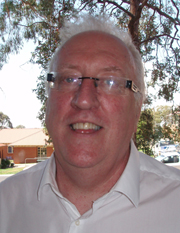 A Charles Sturt University (CSU) academic says the televised interview confession by controversial cycling champion and self-confessed drugs cheat, Lance Armstrong, with US television personality Oprah Winfrey on Friday 18 January, was in the form of a TV secular ‘confessional’ which has been indulged in before by public ‘sinners’ in our time.
A Charles Sturt University (CSU) academic says the televised interview confession by controversial cycling champion and self-confessed drugs cheat, Lance Armstrong, with US television personality Oprah Winfrey on Friday 18 January, was in the form of a TV secular ‘confessional’ which has been indulged in before by public ‘sinners’ in our time.Professor Steve Redhead, adjunct lecturer in sport, media and law at the CSU School of Human Movement Studies in Bathurst, said the two-part two and a half hour TV interview on the Oprah Winfrey Network was a global TV event watched simultaneously by hundreds of millions of viewers.
“The Armstrong version of the televised secular confession - a form of tribunal in contemporary culture - follows the confession on TV by golfer Tiger Woods, another sportsman brought low by lies, albeit in his personal life. Another example is the David Frost interview with former US President Richard Nixon in the 1970s, after he was forced to resign from the White House following the Watergate break-in revelations and related public deception,” Professor Redhead said.
“The characteristics of these ‘confessionals’ is that the central characters seek redemption and forgiveness, and a boost to their future careers, not in the forum of a court but in the public opinion ‘court’ of TV. In some ways, Woods and Nixon were more successful than Armstrong, judging from the immediate reaction on social media sites, news programs, and journalists’ responses. Indeed, the Armstrong case might have more repercussions because of his TV appearance.
“Did he really come clean, or did he compound the earlier lying with evasions and dishonesty once more? The obvious ‘thrill’ that the ‘sinners’ get from their transgressions is never mentioned in any of these confessionals, but it is the main motivation, after all. They all enjoyed the cheating, while it lasted.
“Why did he do it? It could be argued that Armstrong and his advisers want to avoid legal implications of his admission that he was a serial doper in sport, and a serial liar. These could be criminal (perjury) or civil (The Sunday Times in the UK is looking to recover money paid when they were sued by Armstrong). They could be extensive and global in nature. For instance, agencies in Australia are considering attempting to claw back money spent on bringing Armstrong here.”
Professor Redhead says Armstrong’s strategy may work to some extent. He says the legal cases which could be brought against Armstrong are time consuming and expensive, whereas a TV event is more immediate, and could be regarded as Armstrong’s first strike in a long media war to rehabilitate himself, and even return to sport.
“Armstrong kept repeating in the Oprah interview that it would take him the rest of his life to do all this. The problem for him and his advisers is that he covered up for so long, and in doing so covered up the elaborate system of doping and all the agents of illegality.
“He also did not come across on TV as a contrite figure, more as someone confused about what was right and wrong, legal and illegal. The effect of an event like the Oprah interview is to ‘individualise’ the problem, as if this was a case of one or two bad apples, with Armstrong as the biggest celebrity offender, who need to confess and move on with their lives, when in fact doping in cycling in the 1990s, like some athletics events in the 1960s and 70s, was a systematic, illegal abuse narrative with sophisticated systems of rule breaking in place.





Social
Explore the world of social